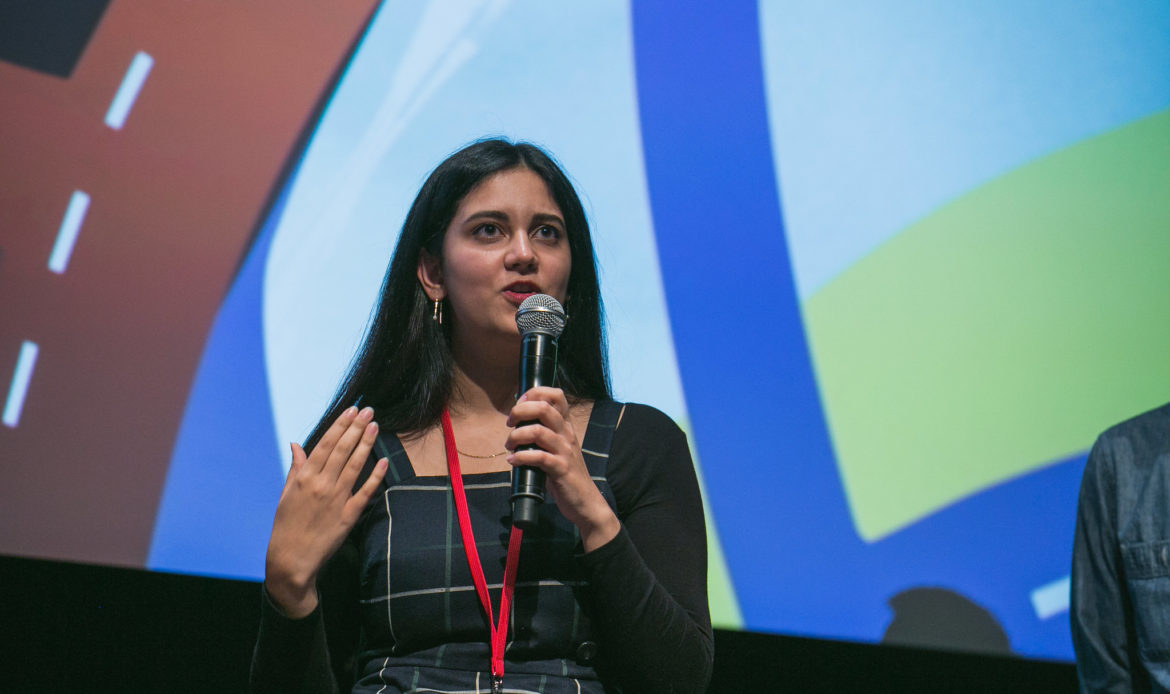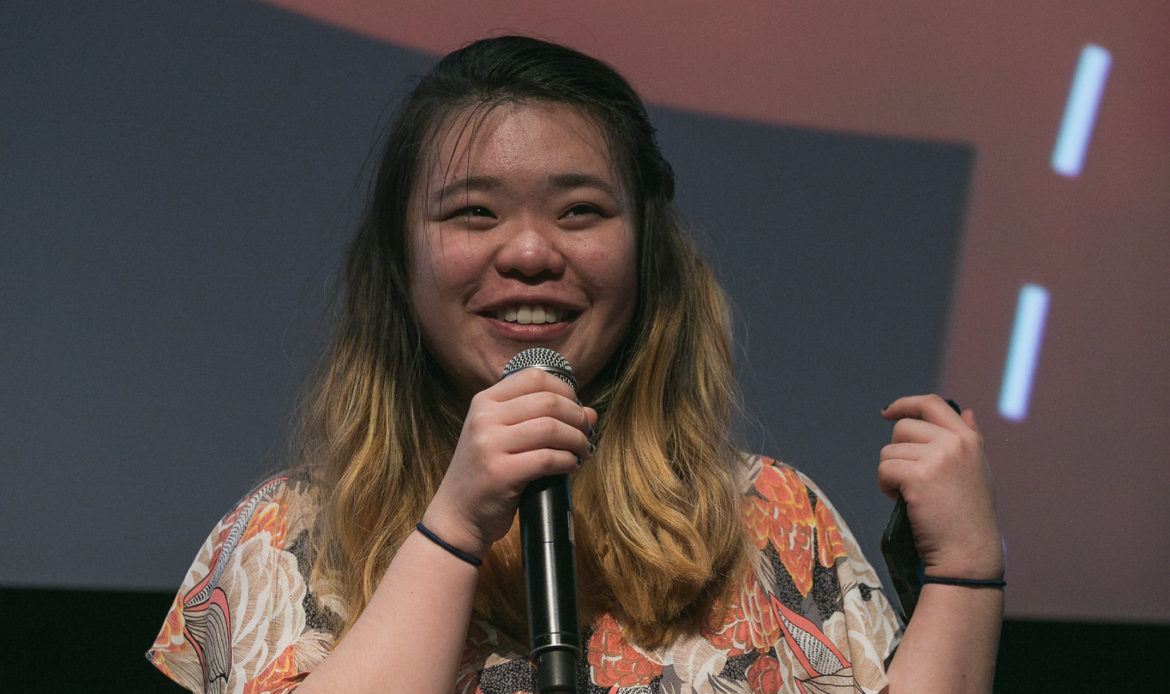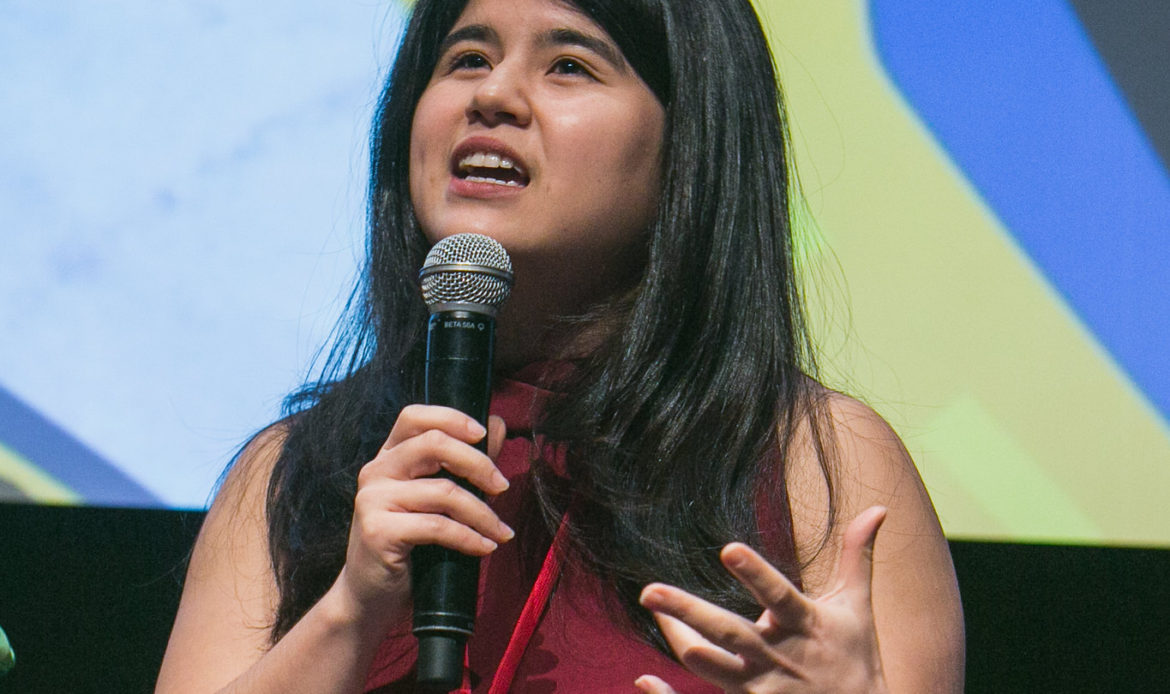U of T’s own ‘Unsung Voices’: Student filmmakers get their start with Reel Asian’s intensive summer program
Twenty-three years. Nine days a year. Thirty-two screenings this year.
The Reel Asian International Film Festival once again brought Asian and Asian diaspora stories to the cinematic forefront, with meetings and screenings hosted across downtown Toronto and North York from November 7 to 15. Through these events, the festival strives to introduce mainstream Canadian audiences to the world of Asian film and foster an awareness of and appreciation for diverse styles of storytelling and creative media.
For the past eight years, an annual feature in the festival’s programming has been the film debuts of the budding filmmakers who were nurtured by its intensive Unsung Voices summer program. The Innis Herald caught up with this year’s U of T student and alumni participants to discuss the meaning and highlights of their time with Unsung Voices.
The Unsung Voices of Asian Canadian Youth
Expanding its educational programming in 2011, the Unsung Voices program added a dimension to the festival that guides the first steps of seven eager pan-Asian youth, ages 15-29, on their journey to becoming filmmakers by mentoring them through the processes for video production. As the program site notes, new projects “by young filmmakers who represent the community will contribute to diverse voices and content on screen.”
Running from June to August, the workshops cover three major skill sets—technical, creative, and management—that are integrated throughout the program. As recent graduate Shubhi Sahni explains, June is dedicated to script writing as well as learning the overall technical and creative procedure of filmmaking. Production gets under way in July and for Sahni, this period was marked by “12-hour days filled with steep learning curves, laughter, sweat, and lots of movie magic.” This growth and dedication culminate in a month of editing in August to prepare their shorts for their November debut.

From School to Screen
Equating her experience to “actual professional development,” fourth-year student Angela Feng also emphasizes the significance of experiential learning for such tasks as sound mixing, gaffing, and art direction. In fact, this practical component is what drove Feng to apply for unsung Voices in the first place. As a Cinema Studies student at U of T, where course content is limited to theory and film criticism, Feng had been seeking “opportunities to expand [her] understanding of on-set roles.”
When she saw an ad on Facebook calling for young Asian Canadians searching for a doorway into filmmaking, she knew she had to apply. Working in a small team of just seven people, Feng got what she was looking for. Not only did Unsung Voices allow her to manage the writing, direction, and production of her own short film, she was also able to help others do the same, filling in various crew positions so all seven women could bring their dreams to screen. For U of T alum Sahar Golshan, the program itself is a dream come true. Unwinding from exams and school, Golshan celebrated the start of summer at Hot Docs. Another annual film festival, Hot Docs brings documentaries from across the globe to Toronto’s—and Golshan’s—doorstep. She recalls “spending days watching three documentaries a day” because she was “entranced by the [ability] of film to convey the story of social movements and intimate family relationships.”
Combining her “deep love and respect” for documentaries and her passion for writing, Golshan felt that Unsung Voices provided her with an incredible platform to realize her “dream to put forth a story that challenged the trope of the Immigrant Success Story.” Golshan’s short, Kar, which translates to “work” in Farsi, explores the changing landscape of cars, labor, and family.
“A year ago,” Golshan comments, “I would not dream of making my own film, let alone having it premiere at TIFF.” Now, Kar is recognized through the Air Canada Short Film Award. Unsung Voices created “a huge gateway into documentary filmmaking” for Golshan.
Sahni was likewise enchanted by the potentials of “visual storytelling.” Sahni is a Book and Media Studies major; her interest in the film and television industry was piqued by an Early Television Studies class that she happened upon in third year. As it turns out, this class was pivotal to Sahni’s passion for film and investment in Unsung Voices. Discussing how features from costumes and lighting to character actions, dialogue, and set design interact to make and deliver meaning, Sahni reflects that, “I had never truly enjoyed or connected with course material in that way before.”

Finding ‘Reel’ Communities
For all three women, Unsung Voices will always stand out for the inclusive and creative communities that the program and Reel Asian introduced to them.
As part of the program’s first ever all-female cohort, Feng describes Unsung Voices as, “a blessed experience” that was “entirely positive and focused on Asian female expression,” a focal point that the industry’s dominant institutions and outward faces often do not reflect. Sahni reinforced this sentiment, saying, “I’m grateful to Reel Asian for giving seven first-time female filmmakers a platform and foundation for their voices.”
Moreover, from the effusive praise that Feng, Sahni and Golshan gave, the festival is more than successful at welcoming and embracing emerging filmmakers in the city’s creative Asian diaspora communities. What sets Reel Asian apart from other festivals, Sahni asserts, is that it is “solely committed to uplifting Asian voices.” Golshan especially appreciated that her introduction to film foregrounded the experiences of and stories told by Asian youth.
Feng also points to another layer of engagement as the festival enables participants to increase “our contact with the diasporic community.” Aside from programming like Unsung Voices and the festival, Golshan references outreach such as the Youth Critics Initiative, which seeks to facilitate critical dialogue and engagement about Asian Canadian arts among budding film practitioners. “All this makes for a very unique space for emerging young filmmakers in the city,” she attests.
Golshan remembers that during the festival, after nine days of meeting other youth participating in Reel Asian as well as other programs run by such film festivals as Inside Out LGBT, Caribbean Tales International and Regent Park, her motivation to make and sustain relationships with other Asian artists grew significantly. This sentiment was not new to Golshan. Throughout her time with Unsung Voices, she recognizes that the staff, many young and of diverse backgrounds, “embody inclusivity and creativity through their everyday interactions” with other youth involved in the festival.
According to Golshan, “this kind of connection to community makes me want to continue to make short documentaries and fulfill my goal of making a feature-length documentary in the future.”

“Filmmaking is dope, and I want to do it.”
Passion and storytelling should not be restricted by financial struggles and access to technical training. Indeed, as Feng puts it, “[filmmaking] is dope, and I want to do it.” For the vast majority, however, these limitations appear far too often and discourage creative risks that could grow into something beautiful. Unsung Voices therefore strives to open itself to as many Asian Canadian youth as possible with most program elements available to participants free of charge.
Sahni confirms this openness and accessibility, explaining that “you just need a passion for film and have a story to tell.” Acknowledging that seeing a film through all the stages of pre-production, production and post-production is hard work, she also assures that having an intrinsic determination and drive to create will propel you through the process. “The experience was one of a kind.”
As Golshan notes, “film is a visual language that we should all have access to.” For Asian Canadian filmmakers, that access could start by sharing their unsung voices at Reel Asian.
